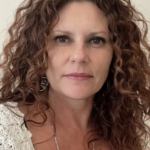
Learning Through Storytelling- Rwanda: A Portrait of Post-Traumatic Growth: A Portrait of Post-Traumatic Growth
Learning Through Storytelling- Rwanda: A Portrait of Post-Traumatic Growth: A Portrait of Post-Traumatic Growth
Information
Date & Time
-
-
Location
-
Northern Hemisphere E1/2
1500 Epcot Resorts Boulevard
Lake Buena Vista, FL 32830
Learning Objectives
Participants will be able to:
-
Define Post-Traumatic Growth Theory
-
List 3 concepts of PTG and apply them to Rwanda's recovery from the genocide.
-
Describe 3 characteristics unique to Rwandan culture that cultivated a unified populous following the genocide.
-
Identify 2 lessons learned about PTG through the Storytelling series and describe how it can be applied to own client work.
Description
Post-traumatic growth (PTG) posits that adversity has the potential to result in transformational change that can manifest in a variety of ways. While PTG does not aim to minimize the challenges associated with suffering, it highlights the potential for meaning-making following pivotal life events. While there have been examples of this phenomenon on an individual level, rarely are these applications discussed on a macro level.
Rwanda is a beacon of hope for the rest of the world regarding their response to the `1994 genocide against the Tutsi, where between 600,000 and 1,000,000 people were killed by friends and neighbors within 100 days. The Rwandan government shaped a thoughtful, organized, and intentional recovery that capitalized on the strengths of Rwandan culture that were embedded before colonization. The safety and cleanliness capture the fruits of this response, and it is a highly connective country that identifies as “One Rwanda.” In essence, the national identity captures the reality that we are all human regardless of ethnic or racial identities.
Our Rwanda: A Portrait of Post-Traumatic Growth is the first episode in a series of storytelling trainings that were designed to increase the relatability of concepts in mental health. This episode will utilize original video content in conjunction with traditional presentation methods to highlight strength, resiliency, and the results of Rwanda’s exemplary response to the genocide. Post-traumatic growth and resiliency are discussed in the context of people who shared their stories with us, along with mental health professionals who live and work in Rwanda.
Target Audience
- Counselor
- Marriage & Family Therapist
- Psychologist
- Social Worker
- Substance Use Disorder Professionals
Presenters

My career in behavioral health began in 1995, where I began working with developmentally disabled children and adults. My faith in human capacity and resilience is rooted in this experience; the people I was hired to serve were my teachers. The foundation of ITTC’s current approach to therapy was developed in what they taught me, which is essentially to approach work with people from the assumption of capacity, inherent goodness, and strength. Working with this population prompted me to pursue my Bachelors degree in Social Work, which I completed at Pacific University. I graduated here Magna Cum Laude and was Social Work Student of the Year in 2000. During my internship at the Sexual Assault Resource Center, I helped develop a sexual assault prevention curriculum for children to be utilized within the school system. My interest in the treatment of trauma began to develop here and prompted me to pursue my graduate degree. I completed my Masters in Social Work from Portland State University where I was the recipient of the Laurels Scholarship and graduated Magna Cum Laude.
After working in the field of social work in various capacities including private practice, the demand for a progressive view to working with post-traumatic stress, dissociative identity disorder and related mental health challenges prompted the creation of Integrative Trauma Treatment Center (ITTC). It is our goal to provide a place where people know that their experiences will be acknowledged, that high-quality care will be provided from a progressive standpoint, and that each type of trauma will be addressed in a focused way. It is the goal of our organization to provide integrative & specialized care, training, and research in a multicultural context on a global scale.
Financially Sponsored By
- The Global Exchange Conference - Exchange Events